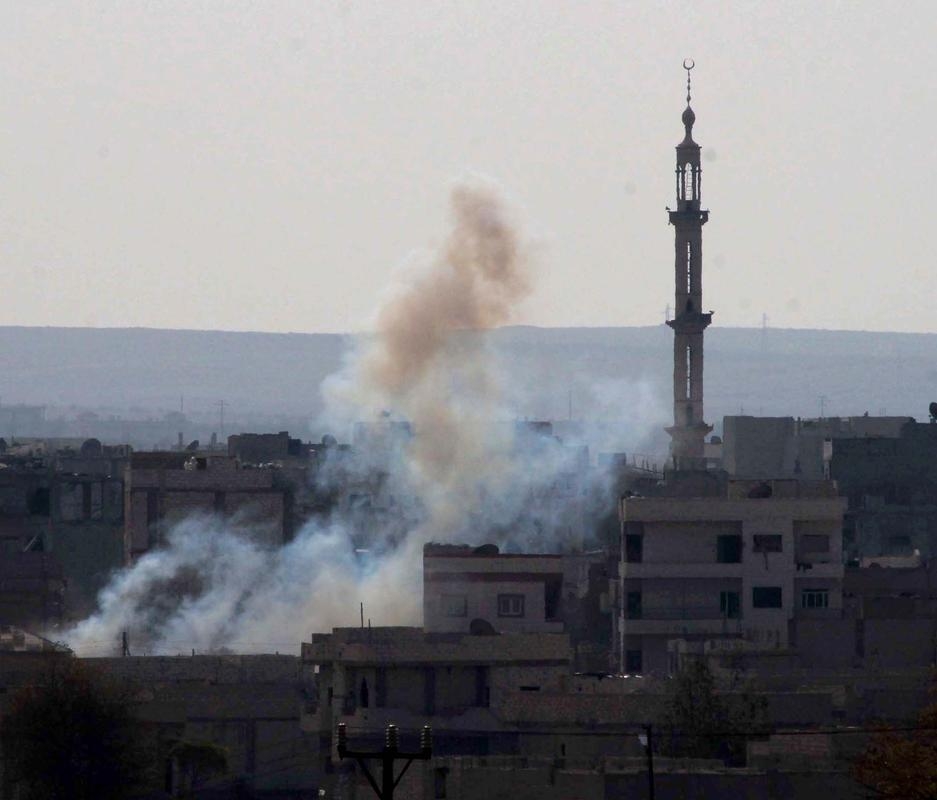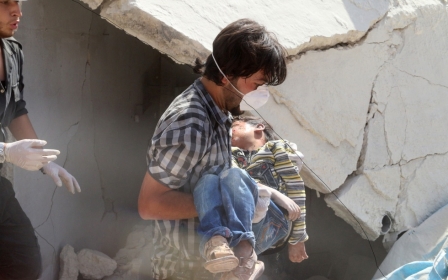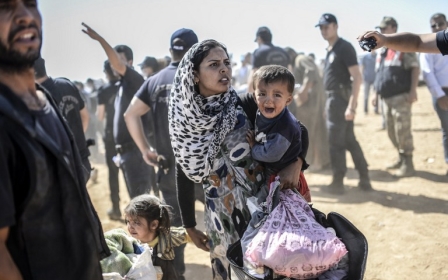Syrian refugees face landmine threat on Turkey border: Report

At least three Syrian refugees have been killed, and another nine injured, by landmines along the Turkey-Syria border, a rights group has alleged.
Human Rights Watch said on Tuesday that thousands of landmines, dating back several decades in a restricted zone in Turkey near the border with Syria, threaten the lives of thousands of Syrians fleeing their country’s ongoing war.
"I was carrying my one-year-old son, while my seven-year-old daughter was holding onto my dress. I stepped on a landmine and it exploded. My son fell to the ground, while my daughter suffered first degree burns on her face," a Syrian-Kurdish woman, using the pseudonym Selma, told HRW, adding that she did not see any warning signs that the land was mined.
At least 2,000 refugees are currently living in the minefield, HRW reported, as the New York-based group urged the Turkish government to safely clear the area.
According to HRW, Turkey laid almost 615,500 landmines along its border with Syria “to prevent illegal border crossings” between 1957 and 1998.
“To fall victim to a landmine after losing your home and fleeing your country is a fate no one should have to endure,” Steve Goose, arms director at HRW, said in a statement. “Turkey has the capacity to clear its minefields and should clear them immediately.”
Turkey home to nearly one million unexploded landmines
At least 1.6 million Syrians have sought refuge in neighbouring Turkey since the war began over three years ago. Thousands more have fled since fighting broke out between Kurdish forces and Islamic State fighters in the Syrian-Kurdish town of Kobane.
The Turkish government has struggled to cope with the influx of refugees, spending at least $4bn so far on its response to the crisis, according to Amnesty International.
“While Turkey has officially opened its border crossings to Syrian refugees, the reality for many of those trying to escape the ravages of war is a different story. Many are pushed back into the war zone with some even facing live fire,” Amnesty’s Turkey researcher, Andrew Gardner, said in a recent statement.
All the landmine incidents HRW documented took place in the Tel Shair corridor, a 300-400m wide area on the Turkish side of the border, northeast of Kobane. Between September 15 and November 15, at least 70 landmine explosions occurred there, HRW found, including one incident that killed a 10-year-old boy and injured at least seven other children.
The refugees remained in the area “because Turkey was refusing entry for cars or livestock and they did not want to leave behind their belongings”.
According to the International Campaign to Ban Landmines, at least 10 people are killed or injured by landmines every day around the world, and approximately 60 countries still contain unexploded landmines.
An international treaty to ban landmines came into effect in 1999, ordering signatories to refrain from using anti-personnel mines, destroy landmines within their country’s stockpiles, and to clear mined territories within 10 years, among other provisions.
Turkey signed onto the treaty in 2003, but received an extension until 2022 to clear its landmines. According to a 2013 report, Turkey is home to almost one million unexploded landmines.
New MEE newsletter: Jerusalem Dispatch
Sign up to get the latest insights and analysis on Israel-Palestine, alongside Turkey Unpacked and other MEE newsletters
Middle East Eye delivers independent and unrivalled coverage and analysis of the Middle East, North Africa and beyond. To learn more about republishing this content and the associated fees, please fill out this form. More about MEE can be found here.




